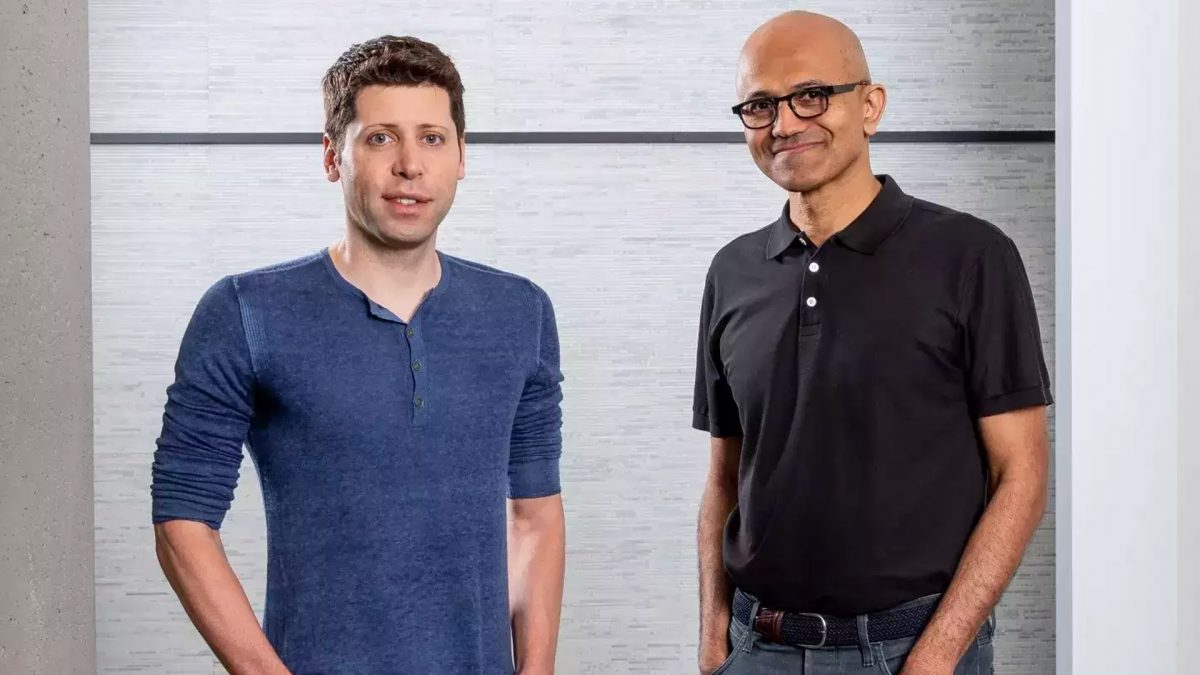Microsoft and OpenAI have enjoyed a unique relationship, with Microsoft serving as OpenAI’s exclusive cloud provider and integrating OpenAI’s AI models into its products for both commercial and consumer use read more
)
In its annual report, Microsoft detailed its competitive landscape in the AI sector, naming OpenAI along with others like Anthropic and Meta. Image Credit: Microsoft
Microsoft’s latest annual report has sparked interest by listing OpenAI as a competitor, suggesting a possible shift in their previously collaborative relationship. This development is surprising, considering Microsoft’s substantial investment of around $13 billion in OpenAI and their history of close partnership.
Microsoft and OpenAI have enjoyed a unique relationship, with Microsoft serving as OpenAI’s exclusive cloud provider and integrating OpenAI’s AI models into its products for both commercial and consumer use. However, the latest report highlights a competitive aspect, listing OpenAI alongside tech giants such as Amazon, Google, and Meta. This change indicates that both companies might be moving into overlapping territories, prompting a reassessment of their collaboration.
In its annual report, Microsoft detailed its competitive landscape in the AI sector, naming OpenAI along with others like Anthropic and Meta. This is particularly intriguing because OpenAI has been a crucial partner, notably in the development and deployment of ChatGPT.
OpenAI recently announced a new venture through which they are taking on Google’s search engine business, called SearchGPT. Apart from Google, this also directly goes against Microsoft’s own AI initiatives.
Microsoft stated, “Our AI offerings compete with AI products from hyperscalers such as Amazon and Google, as well as products from other emerging competitors, including Anthropic, OpenAI, Meta, and other open source offerings, many of which are also current or potential partners.”
The fact that Microsoft is officially recognising OpenAI as a competitor may have massive repercussions for OpenAI and Microsoft’s relationship ship, but also how OpenAI is seen in the market. This in turn is bound to have an effect on the tech sector.
Despite this new competitive stance, an OpenAI spokesperson told CNBC that the competitive nature of the partnership was always understood and that their collaborative relationship remains unchanged. Microsoft continues to offer access to OpenAI’s models through its Azure platform, while also providing alternatives like its Copilot chatbot available via Bing and Windows.
The past year has seen significant events that have tested the relationship between the two companies. Notably, Microsoft CEO Satya Nadella was reportedly not informed before OpenAI’s board temporarily ousted CEO Sam Altman in November. Following Altman’s swift reinstatement, Microsoft was granted a non-voting board seat at OpenAI, a position it relinquished earlier this month.
Further adding to the complexity, Nadella hired Mustafa Suleyman, co-founder of DeepMind, to lead a new unit called Microsoft AI, bringing along several employees from Inflection AI, Suleyman’s previous startup. This strategic move underscores Microsoft’s commitment to strengthening its own AI capabilities.
Despite acknowledging OpenAI as a competitor, Nadella and Altman maintain a close professional relationship. As both companies navigate their evolving roles in the AI landscape, their relationship remains a focal point of interest in the tech industry.

 1 month ago
32
1 month ago
32
)
)
)
)
)
)
)
)
)
)
)
)
)
)
)
)
)
)
)
)
)
)
)
)
 English (US) ·
English (US) ·